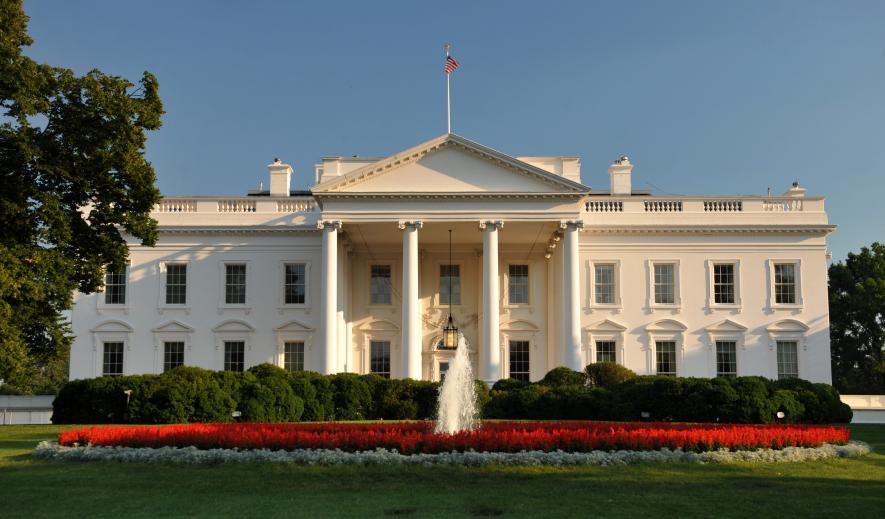Will US Default on its Debt Obligations?

Image Courtesy: Wikimedia Commons
More often than not, governments have to borrow to fund their expenditure. To do that, they usually sell bonds to the public. A bond is a certificate which you can buy, which entitles you to a fixed return. It is similar to putting your money in the bank and earning a fixed interest on it. The only difference is that you can trade bonds; you cannot sell your fixed deposit to someone else.
Government bonds, precisely because these are backed by the most stable borrower in any economy, are considered to be the safest things to invest in. And amongst these, US government bonds are considered to be the safest of all. That is because these are backed by the world’s reserve currency, the dollar, and also because the US is the world’s biggest economy. No one expects the US government to default on its debt obligations.
But this is exactly what will happen if the opposition-controlled US Congress manages to block the Joe Biden administration’s budget. There is an archaic debt ceiling law in the US, which sets a limit on how much the federal government can borrow. The limit is currently set at $31.4 trillion, but the Biden government already reached that ceiling in January this year. Under normal circumstances, the government and Congress get together and the ceiling is raised. This time the Republicans are playing hardball, and want Biden to cut spending instead of borrowing more.
This is not the first time that Republicans have tried to force spending cuts instead of raising the debt ceiling. A similar thing happened in 2011-12, when Barack Obama was President. Obama gave in and reduced social security spending, instead of looking for ways to checkmate the Republican-dominated Congress. He was attacked by the liberal media for being meek, but in reality, he was simply playing the game according to the rulebook of finance capital.
We will return to that later, but first, let us look at some of the possible solutions to the standoff. Government debt is only counted as that when it issues bonds and gets money against them. The bonds would be bought by the US Federal Reserve, the central bank of the United States, which in turn would print the money. But what if the government were to print money directly? This would not count as debt! The US government is allowed to mint platinum coins of any value, even one trillion dollars without going through the Fed.
This is nothing but an accounting exercise. Issuing this coin would make no difference to the system: The Fed would ‘sterilise’ it by selling some of the bonds it holds and sucking out an equivalent amount of money from the overall supply. The funding of government expenditure would simply be a variant of deficit financing. This entire ‘crisis’ theatre would be averted by simply invoking this rule. The debt ceiling would not be affected, because the platinum coin would help in the accounting ‘trick’ of keeping government debt exactly where it is.
Much of the liberal punditry in the US is opposed to this. They say if the government issues $1 trillion of currency directly, it will lead to irresponsible spending. That, in turn, will artificially boost demand and cause inflation. This is pure sophistry. The US government is asking to borrow money for budgetary expenditure that has already been sanctioned by Congress.
The American system has this peculiarity that even if Congress has passed a budget, and the government needs to borrow money to implement that budget, Congress will have to sanction the borrowing plan separately. In this case, the Republican Congress has already passed and ratified the Biden administration’s spending plan, but is now refusing to let it fund it.
The objective is to bargain and force the government to stop several social security schemes. In fact, the Republicans have even presented an alternate budget, which cuts expenditure by 20% by removing the clean energy tax-breaks promised by the Biden administration and reversing the government’s decision to forgive student debt. The American Right, which lobbies for bailouts when investment banks and big corporates fail, want to stop deeply indebted, and often unemployed, students from being bailed out.
This is the nature of finance capital. It must always oppose subsidies to the poor and the underprivileged, since any support to the working-classes can make them less likely to accept low wages. And if real wages cannot be kept down, profit rates are likely to fall.
Finance capital also always opposes government intervention in the economy, even if it is just a façade. It is patently obvious that central banks are in reality part of the government sector. Central bank independence, when it comes to setting interest rates and printing money, is simply a way for finance capital to control monetary policy. So, even though issuing bonds and minting a platinum coin are effectively the same, neoliberal commentators pretend that they are different. Their aim is to ensure that the government not only stays out of the economy, but is also seen to be out of it.
Of course, the long-term answer to such standoffs over the debt ceiling law, is to ensure that the US government does not take such big loans. And it doesn’t have to cut its expenditure to achieve that goal. All it has to do is to increase taxes on corporations and on the rich. But if a government in a capitalist economy could do that, then it would not be capitalism.
The writer was a senior managing editor of NDTV India & NDTV Profit. He runs the YouTube channel Desi Democracy and anchors a bi-weekly show on Newsclick. The views are personal.
Get the latest reports & analysis with people's perspective on Protests, movements & deep analytical videos, discussions of the current affairs in your Telegram app. Subscribe to NewsClick's Telegram channel & get Real-Time updates on stories, as they get published on our website.























